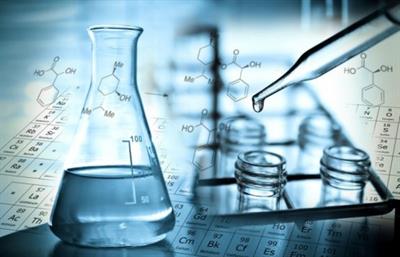The Future of Chemical Products: Patterns and Technologies to Enjoy
The Future of Chemical Products: Patterns and Technologies to Enjoy
Blog Article
Trick Considerations for Picking the Right Chemical Products to Achieve Reliable Integrated Solutions in Your Workflow
Choosing the suitable chemical products for incorporated remedies in procedures calls for a diverse approach that encompasses different important factors to consider. From evaluating chemical compatibility to making certain adherence to governing requirements, each aspect plays a critical function in optimizing operational efficiency and safety and security. In addition, examining environmental influences and distributor reliability can not be overlooked in this intricate decision-making procedure. As organizations make every effort to improve their methods, the interaction of these components elevates crucial questions regarding best methods and potential challenges that merit further expedition.
Recognizing Chemical Compatibility

To review compatibility, one must take into consideration aspects such as the chemical homes of the substances included, including pH, focus, temperature level, and the existence of impurities. Utilizing compatibility graphes and databases can supply important understandings into possible interactions. In addition, conducting small tests can aid recognize unpredicted reactions that might not be documented.
Aspects such as humidity, light exposure, and temperature can affect the stability and reactivity of chemical products. By prioritizing chemical compatibility throughout the selection process, organizations can enhance operational efficiency, reduce the threat of mishaps, and make certain compliance with security protocols.
Assessing Regulatory Conformity
In the complex landscape of chemical product option, examining governing compliance is critical to guaranteeing not just security but likewise lawful adherence. Organizations should browse a myriad of laws, from neighborhood and nationwide regulations to worldwide standards, that control the usage, storage, and disposal of chemical substances. This needs an extensive understanding of relevant policies such as the Occupational Security and Wellness Management (OSHA) criteria, the Environmental Defense Agency (EPA) guidelines, and the European Union's Registration, Assessment, Authorisation and Limitation of Chemicals (REACH)
When picking chemical items, it is essential to validate that suppliers provide Security Information Sheets (SDS) that information possible dangers and managing requirements. Businesses should validate that the chemicals conform with industry-specific policies, which may enforce added specifications. Non-compliance can bring about serious penalties, consisting of penalties and operational shutdowns.
Additionally, organizations should remain updated on regulatory adjustments, as non-compliance can develop from outdated techniques. Creating a durable compliance method, including normal audits more information and worker training, can assist guarantee adherence to present policies. Inevitably, prioritizing regulatory compliance not just reduces threat yet likewise enhances the organization's credibility and operational effectiveness.
Assessing Environmental Influence
Just how can organizations efficiently evaluate the environmental impact of chemical products during the option procedure? Organizations ought to begin by identifying the potential hazards associated with each chemical, consisting of toxicity, determination in the environment, and bioaccumulation possibility.
Furthermore, companies can leverage third-party qualifications and eco-labels that suggest compliance with ecological requirements - Chemical Products. Involving with vendors that prioritize sustainability practices can likewise enhance the option process. It is important to analyze not only the straight effects of chemical use but likewise the indirect effects, such useful site as power usage and waste generation
Applying life cycle evaluation (LCA) techniques can provide thorough insights right into the environmental impact of chemical products, highlighting locations for improvement. By prioritizing transparency and collaboration with stakeholders, companies can make educated choices that align with their sustainability objectives while minimizing unfavorable ecological outcomes. This positive approach eventually promotes a much more liable and eco-conscious operational framework.
Examining Cost-Effectiveness
While reviewing chemical products for operational use, organizations need to additionally take into consideration cost-effectiveness as a critical element in the selection procedure. This entails examining not only the preliminary purchase cost but additionally the complete expense of ownership, that includes elements such as use efficiency, upkeep, and disposal costs. Chemical Products. An item that appears cost-effective upfront may incur greater costs in power intake or require even more constant substitute, ultimately impacting the lower line
In addition, organizations must assess the possibility for expense financial savings through enhanced solutions that enhance efficiency and reduce waste. Products that require lower application rates or provide faster processing times can lead to considerable cost savings over time. It is likewise vital to think about the impact of regulative compliance expenses, as non-compliance can lead to fines and boosted functional costs.
Moreover, companies must review the long-lasting worth originated from the chemical items, consisting of enhanced high quality, enhanced performance, and enhanced safety. A detailed cost-effectiveness analysis equips companies to make informed decisions that straighten with both their financial goals and operational goals, eventually resulting in lasting and reliable techniques.
Identifying Distributor Dependability
Supplier integrity is critical when picking chemical products for procedures, as it directly influences both product top quality and operational performance. A reliable vendor regularly supplies premium items in a timely manner, guaranteeing that your processes remain nonstop. To identify vendor integrity, start by evaluating their online reputation within the sector. Seek out reviews, testimonies, and instance studies that highlight their performance and client fulfillment degrees.
Next, consider the supplier's background of conformity with guidelines and see this page requirements. A reliable provider must have a durable quality control program that sticks to sector guidelines. In addition, review their capability to provide technical assistance and item information, which is crucial for educated decision-making.

Conclusion
In final thought, selecting the appropriate chemical products for integrated solutions demands a thorough analysis of a number of vital elements. Understanding chemical compatibility, ensuring regulative compliance, analyzing ecological impacts, analyzing cost-effectiveness, and recognizing reputable suppliers jointly contribute to notified decision-making.
Report this page